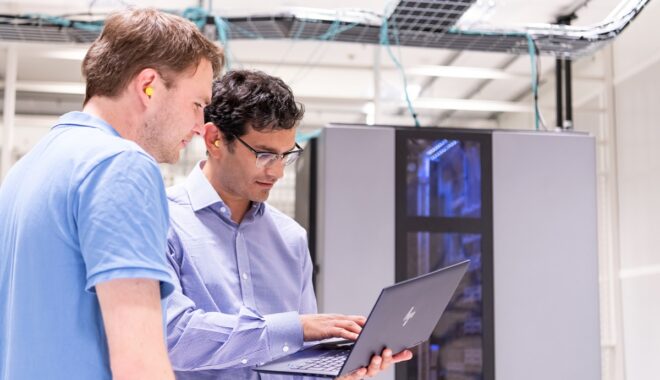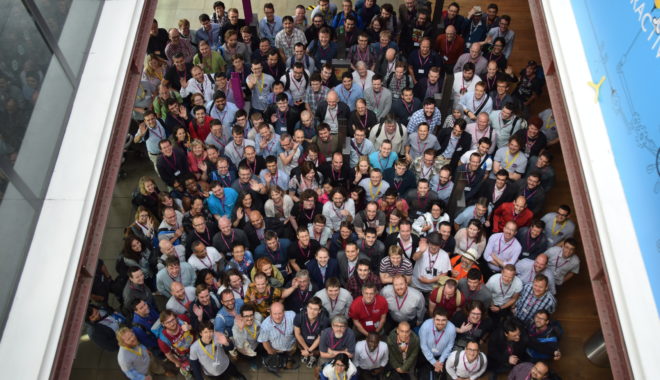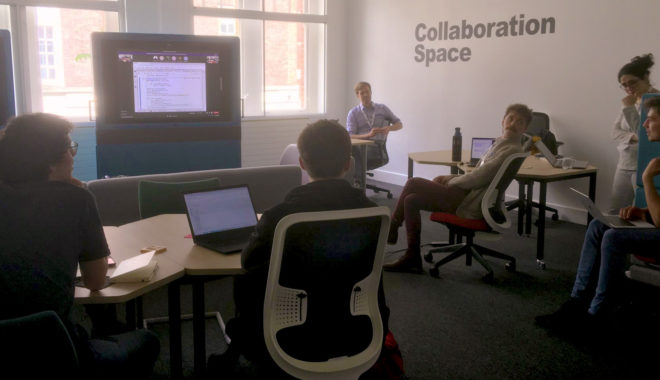Computing

Academic research, particularly in the sciences has always been data driven, but technological improvements mean that researchers can do so much more with data.
Through data, we can unlock the research that can provide the catalyst for scientific, industrial and societal advancements. But to do that, researchers need computers with the power to process data and provide calculations at high speeds.
High Performance Computing
There are currently a number of new High Performance Computing facilities in the UK, from the new national supercomputing service ARCHER2, to institutions’ own HPC systems. Information about national services can be found on the HPC UK website.
Additionally, researchers have access to “Tier-2” HPC at a regional level, which provide a more specialised services for specific types of research. They include:
- Joint Academic Data Science Endeavour (JADE)
- Materials and Molecular Modelling Hub (MMM Hub)
- EPSRC Tier2 @CSD3
You can find out more about the facilities, including regional and institutional services on our High Performance Computing page.
Exascale Computing
The fastest HPC in the world today already work at a speed that it is difficult for many of us to visualise in our heads. They solve problems at the petascale – a quadrillion calculations every second, but attention is now turning to the next milestone – the exascale.
At a quintillion calculations each second, exascale supercomputers will allow researchers to more realistically simulate the world around us, enabling more accurate modelling in disciplines where precision is everything, such as medicine, nuclear physics and national security.
The UK will deploy its first exascale supercomputer “by 2025,” via a joint investment led by UK Research & Innovation and the Met Office, the government has confirmed.
Find out more about our members’ role in developing Exascale computing in the UK.
SES released a report on the barriers to using research HPC experienced by UK industry based on our work with organisations and their demand for higher compute power. The consortium is committed to exploring how boundaries to working with business can be lowered – more information can be found in ‘High Performance Computing for Industry: The Case of the Centre for Innovation’.
The latest on computing

Supporting digital Research Technical Professionals: Building a community, shaping careers
With a growing recognition of the technical skills needed to underpin modern research, a project has been launched to support a community of professionals with these skills. Jeremy Cohen describes STEP-UP and how it will give this community the infrastructure they deserve.

Crafting culture change
This year is the tenth anniversary of the Research Software Engineers’ community. It’s a milestone for the group – but also a huge milestone for the UK research environment.

Research technology professionals – adding value to research teams
When research technology professionals work with your team it makes for ‘happy researchers’ delegates at a SES event heard last month.

Research technology professionals: the hidden roles behind research success
Research Technology Professionals play a crucial role in achieving high-quality research outputs. Supporting their career progression benefits the whole research community.

UK’s ‘digital blueprint’ receives £1.2m funding boost
The UK’s ability to respond to global challenges has been enhanced with a £1.2m investment in a digital platform that helps scientists analyse problems and model infrastructure improvements.

SES celebrates the DAFNI champions
Six researchers from SES institutions are among 12 DAFNI champions who will get early access to the £8m infrastructure modelling and visualisation platform.

